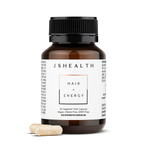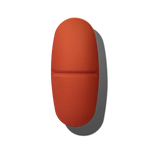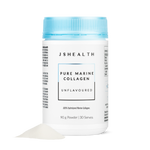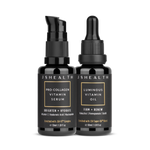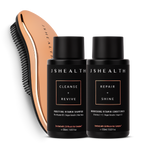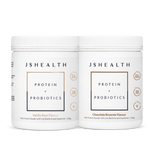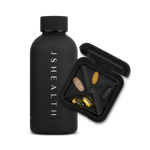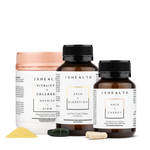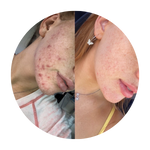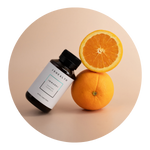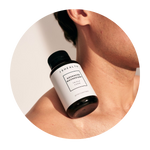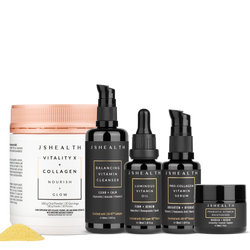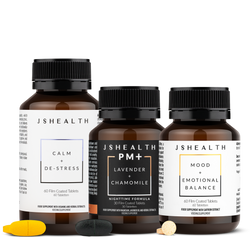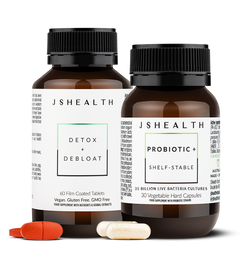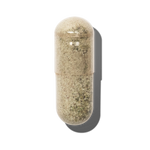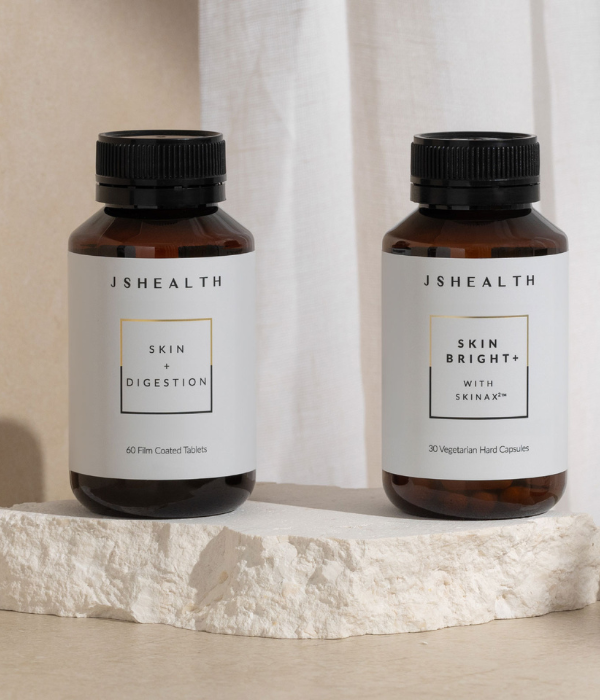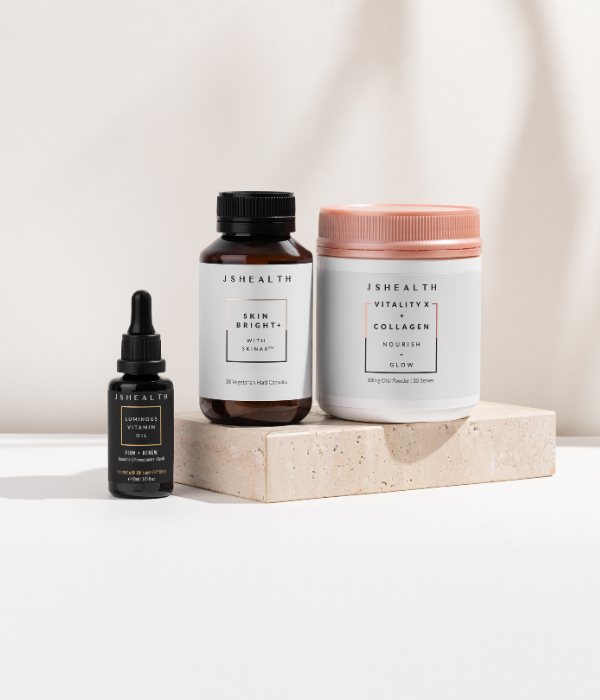Why Vitamin C Is A Year-Round Supplement
When it comes to bolstering our body’s defenses against the seasons, speeding up wound health, restoring vitality to the complexion or supporting overall health, there's one supercharged vitamin that everyone reaches for…
Vitamin C.
Often the go-to when our immune system is in need of a little extra-TLC, many turn to Vitamin C to help the body adapt to additional stressors (such as whilst traveling, or during a change of seasons).
However, Vitamin C is so much more than a winter remedy! This essential nutrient enhances cell function and helps to protect against infections and illnesses, no matter the season.
To understand this more, let’s first dive into our body’s innately wise ‘immune system.’
How Does The Immune System Work?
Put simply, the immune system is a complex network of cells, tissues, and organs that work together to defend the body against harmful pathogens - such as bacteria, viruses, fungi, and parasites(1).
Its primary function is to identify and eliminate any invaders while distinguishing them from the body's own healthy cells!
The immune system also includes lymphoid organs such as the thymus, spleen, and lymph nodes, where immune cells develop sophisticated responses against pathogens.
The Role of Vitamin C
Vitamin C works as a loyal comrade in the body by combating oxidative stress. In excess (or over chronic periods of time) oxidative stress can weaken our immune system(2).
The ‘immunity-vitamin’ also boasts powerful benefits such as:
- Antioxidant Properties: As a potent antioxidant, it helps protect cells from damage caused by free radicals.
- Stimulation of White Blood Cells: It stimulates the production and function of white blood cells which are crucial components of the immune system, helping to defend the body against infections(3).
- Enhanced Skin Barrier: Those seeking a brighter complexion - look no further! Vitamin C is involved in the synthesis of collagen, vital for maintaining the integrity of skin barriers(4).
- Improves Wound Healing: Necessary for the formation of new tissue, it helps the body to repair wounds.
- Reduces Duration of Illness: Vitamin C has been shown to reduce the duration and severity of cold symptoms, allowing the immune system to restore equilibrium quicker(5).
Ways To Boost The Immune System
Whilst Vitamin C is certainly celebrated for its role in boosting immunity, solely relying on supplements during cold-season can overlook the importance of holistically supporting our immune system all year-round(6).
Some ways to do this are:
- Healthy Diet: Eat a balanced diet rich in fruits, vegetables, whole grains, lean proteins, and healthy fats. Include foods high in Vitamins C (such as citrus), as well as zinc and selenium, which are essential for immune function.
- Regular Exercise: Be sure to move your body most days of the week! Find an exercise you love (you can explore a range of movement practices we offer for FREE in the JSHealth App).
- Adequate Sleep: Aim for 7-9 hours of quality sleep each night. During sleep, the immune system releases proteins which help fight infection or inflammation.
- Stress Management: Chronic stress can suppress immune function. Practice stress-reducing techniques such as deep breathing, meditation or yoga.
- Probiotics: These beneficial bacteria support immune function by maintaining a healthy balance in the gut microbiota. They also compete with harmful bacteria for nutrients, reducing the likelihood of infections! Consuming probiotic-rich foods (like yogurt and fermented foods) or taking supplements can contribute to a fortified immune response(7).
- Vitamin D: Adequate Vitamin D levels help in the production of antimicrobial peptides that destroy invading microorganisms. Ensuring adequate sun exposure, or supplementing - can aid in maintaining a healthy immune system(8).
References
- Medina, KL. Overview of the immune system. 2016, (133), pp. 61-76. PubMed
- Chambial, S., Dwivedi, S., Shukla, KK., John PJ., Sharma P., Vitamin C in disease prevention and cure: an overview. Indian J Clin Biochem. 2013, (4), pp. 314-28. PubMed
- Carr, A.C., Maggini, S. Vitamin C and Immune Function. 2017, 9(11), p. 1211. PubMed
- Pullar, JM., Carr, AC., Vissers, M.C.M., The Roles of Vitamin C in Skin Health. 2017, 9(8), p. 866. PubMed
- Bucher, A., White N. Vitamin C in the Prevention and Treatment of the Common Cold. Am J Lifestyle Med. 2016, 10(3), pp. 181-183. PubMed
- Gombart, A.F., Pierre, A., Maggini, S., A Review of Micronutrients and the Immune System-Working in Harmony to Reduce the Risk of Infection. 2020, (12:1), p. 236. PubMed
- Mazziotta, C., Tognon, M., Martini, F., Torreggiani, E., Rotondo, J.C., Probiotics Mechanism of Action on Immune Cells and Beneficial Effects on Human Health. 2023, 12(1), p. 184. PubMed
- Aranow, C. Vitamin D and the immune system. J Investig Med. 2011 Aug;59(6), pp. 881-886. PubMed
